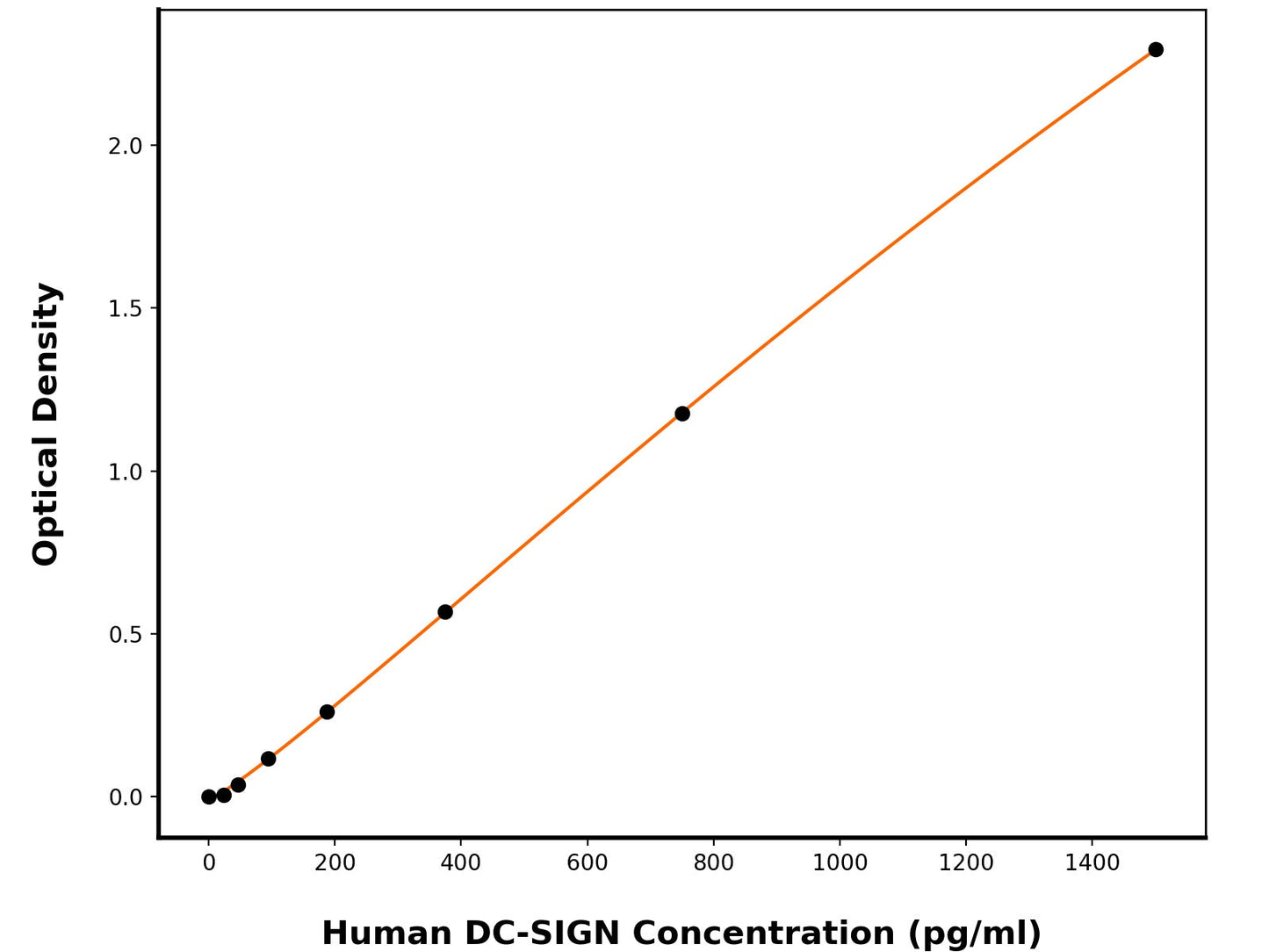1
/
of
1
Human CD209 Antigen (CD209) ELISA Kit
Human CD209 Antigen (CD209) ELISA Kit
This ELISA kit is designed to detect Human CD209 Antigen (Human CD209). The assay plate has been pre-coated with mouse anti-Human DC-SIGN monoclonal antibody. When the sample containing DC-SIGN is added to the plate, it binds to the antibodies coated on the wells. Then, a horseradish peroxidase conjugated mouse anti-Human DC-SIGN Antibody is added to the wells and binds to DC-SIGN in the sample. After washing the wells, substrate solutions are added, and the color intensity is directly proportional to the amount of Human DC-SIGN present. The reaction is stopped by adding an acidic stop solution, and the absorbance is measured at 450 nm.
Catalog No:
BPE043
Regular price
$754.00 USD
Regular price
$580.00 USD
Sale price
$754.00 USD
Unit price
/
per
2 weeks
Couldn't load pickup availability
Product Details
Species Reactivity
Human
Sensitivity
4.35 pg/mL
Detection Range
23.44-1500 pg/mL
Sample Type
Serum, plasma, cell culture supernates
Incubation(s)
3.5 hour(s)
Research Areas
Immunology, Microbiology, Signal Transduction
Background
Dendritic cell (DC)-specific intercellular adhesion molecule 3 (ICAM-3) grabbing nonintegrin (DC-SIGN), also known as CD209, is a type II transmembrane protein on DCs with a C-type lectin extracellular domain, is capable of binding ICAM-3 on resting T cells in the secondary lymphoid organs, providing the initial contact between these cells during the establishment of cell-mediated immunity. It is not only a pattern recognition receptor but implicated in immunoregulation of DCs. It has an important role in mediating DC adhesion, migration, inflammation, activating primary T cell, triggering immune response and participating in immune escape of pathogens and tumors. DC-SIGN also mediates the capture and internalization of viral, bacterial, and fungal pathogens by dendritic cells, such as HIV-1, Ebola virus, cytomegalovirus, Dengue virus, and hepatitis C virus. DC-SIGN is unique in that it regulates adhesion processes, such as DC trafficking and T-cell synapse formation, as well as antigen capture. Moreover, even though several C-type lectins have been shown to bind HIV-1, DC-SIGN does not only capture HIV-1 but also protects it in early endosomes allowing HIV-1 transport by DC to lymphoid tissues, where it enhances trans infection of T cells. Cancer Immunotherapy Immune Checkpoint Immunotherapy Targeted Therapy
Shipping Condition
Shipped on cold gel packs.
Storage Condition and Shelf Life
This product can be stored at 2-8C.
Analyte
CD209 antigen
Regulatory Status
For Research Use Only

